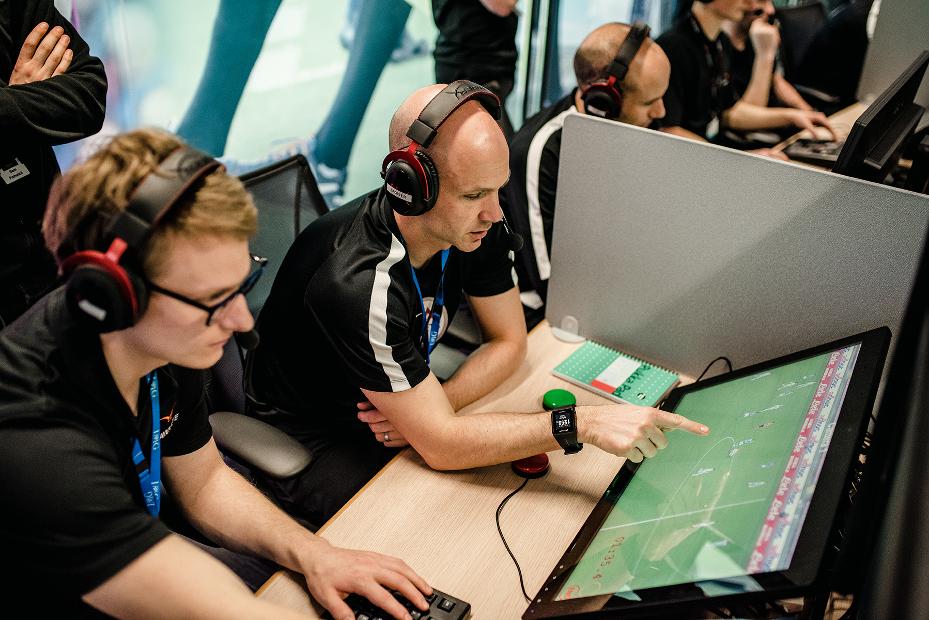Why English Referees Don't Make It to the World Cup
The FIFA World Cup is the most prestigious football tournament on the planet, drawing in the best players, teams, and referees from across the globe. While English football is well known for its passionate fan base and historic clubs, one peculiar trend has emerged in recent years: English referees rarely, if ever, make it to the World Cup.
This absence is particularly perplexing given the prominence of the Premier League, one of the world’s most-watched football leagues. So, why do English referees struggle to get the call-up for the biggest footballing stage?
Perception of Bias and Over-Policing in Domestic Games
One of the primary reasons for the underrepresentation of English referees on the World Cup stage is the perception of bias within the domestic game. The Premier League, known for its physicality and high-intensity matches, has developed a culture where referees are seen as over-policing certain types of play while being lenient in others. 
Referees in England are often accused of inconsistent decision-making, particularly when officiating matches involving top clubs.
The notion that referees apply different standards when officiating for big teams compared to smaller ones has sparked debates. This inconsistency is picked up by international observers, contributing to the perception that English referees may struggle to adapt their game management when officiating at a World Cup, where neutrality and fairness are paramount .
In England, referees are constantly under the microscope, with every decision dissected by pundits and fans. This pressure can sometimes lead to erratic decision-making, which does not go unnoticed on the international stage. The intense scrutiny might affect their confidence, causing FIFA to question their ability to handle global tournaments with fairness and objectivity .
The Rise of VAR and Its Impact on English Officiating
The introduction of Video Assistant Referee (VAR) technology has significantly altered the landscape of modern football. However, English referees have faced significant criticism regarding their implementation and use of this system, further damaging their credibility on the international stage.
VAR was introduced to ensure accurate decisions, but in the Premier League, it has often led to long delays, frustrating players and fans alike. English referees, in particular, have been criticized for their reluctance to rely on the technology when appropriate or for their over-reliance on VAR to make simple decisions .
FIFA and other footballing authorities have observed the Premier League’s struggles with VAR and have expressed concern that English referees might bring these same issues to the World Cup. Poor management of the technology during domestic matches can impact the referee's reputation internationally, as FIFA prioritizes smooth and effective use of VAR at its tournaments .
The Lack of International Experience and Exposure
Another major factor that hinders the selection of English referees for the World Cup is their lack of international experience. While the Premier League is one of the most competitive leagues globally, many of its referees rarely officiate outside England. This lack of exposure to different footballing cultures and styles presents a significant hurdle for their World Cup ambitions.
Unlike referees from other European nations, English officials are seldom appointed to oversee UEFA Champions League finals, major international friendlies, or matches in other top domestic leagues . This limited exposure means that they are not accustomed to officiating matches with varying footballing philosophies, which differ significantly from the fast-paced, physical nature of the Premier League.
International football is different from domestic leagues, with its slower pace, more tactical play, and the heightened importance of fairness. Referees with little experience on this stage may struggle to adjust. FIFA seeks officials who have shown they can excel across different footballing contexts, something English referees often lack .
Changing Standards and FIFA's Global Preferences
FIFA has made significant strides in diversifying its referee pool for the World Cup, aiming to showcase a broad representation of officials from different footballing regions. In recent years, the governing body has favored referees from nations outside of Europe, in a bid to promote inclusivity and global growth of the game. This shift has had a direct impact on the selection of referees from top footballing nations, including England.
FIFA’s decision to spotlight referees from less traditional footballing countries, such as Asia and Africa, is part of a wider agenda to promote football in emerging markets . This initiative aligns with the governing body’s efforts to globalize the sport, leaving fewer spots for European referees, particularly those from the more established leagues like England.
FIFA’s selection criteria for referees at the World Cup go beyond just the technical aspect of refereeing. The organization considers factors such as the ability to manage players from diverse backgrounds, temperament under pressure, and adaptability to FIFA’s specific refereeing guidelines. English referees, despite their strong technical abilities, may not meet all these criteria due to their domestic focus and the aforementioned inconsistencies in decision-making .
Another key factor is the ability to adapt to the cultural differences inherent in international football. English referees, who are deeply entrenched in the traditions and expectations of Premier League football, may struggle to adjust to FIFA’s expectations of a more balanced and neutral approach .
Sources:
- The Guardian - FIFA’s VAR Concerns and Its Impact on World Cup Referee Selection
- UEFA - International Exposure for Referees
- Sports Psychology Today - The Role of Bias in Referee Decision-Making
- Sky Sports - Challenges with VAR in the Premier League
- Independent Football - The Evolution of Refereeing Standards in England
- ESPN - FIFA’s Global Refereeing Strategy
- FIFA Official Site - FIFA's New Criteria for World Cup Referees
- The Athletic - The Impact of Pressure on Referees in High-Stakes Matches
- FIFA.com - Inclusion and Diversity in World Cup Referee Selection

































